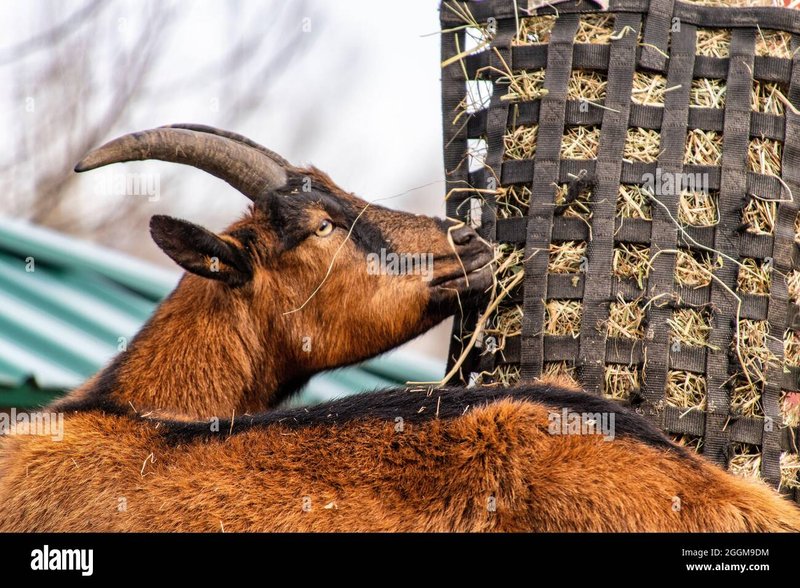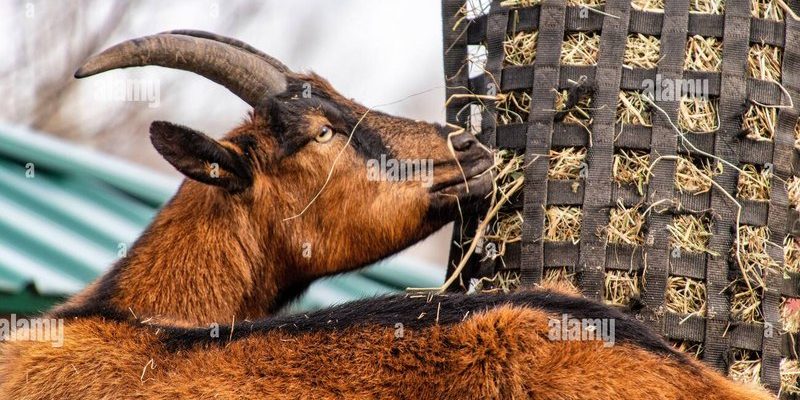
When it comes to nutrition, Oberhasli goats have specific requirements to thrive. Their diet can affect everything from their milk production to their overall health. By understanding what they need, you can ensure your goats are healthy, energetic, and ready to produce that rich, creamy milk they’re famous for. Let’s dig into the ins and outs of feeding your Oberhasli goats, so you can keep them thriving and happy.
Understanding the Basics of Goat Nutrition
Let’s start with the fundamentals. Goats are browsers, meaning they prefer to munch on leaves, shrubs, and other plants rather than just grazing on grass. Their digestive systems are well-suited for this varied diet, which is why it’s crucial to provide them with good forage. You might be thinking, “What exactly does that mean?” Essentially, you’ll want to ensure they have access to plenty of high-quality hay, pasture, and browse.
The nutritional needs of Oberhasli goats can be broken down into a few core components: carbohydrates, proteins, fats, vitamins, and minerals. Each of these plays a role in their health and productivity. For instance, carbohydrates are essential for energy, while proteins are necessary for muscle development and milk production.
Forage: The Foundation of Their Diet
Forage is a pretty big deal for goats. It should make up a significant portion of their diet. High-quality hay, such as alfalfa or grass hay, provides the necessary fiber for digestion. Think of it as their main course. Grains can also be added but should be given in moderation. A good rule of thumb is to provide about 2-4% of their body weight in hay daily. So, if your Oberhasli goat weighs around 100 pounds, that’s roughly 2 to 4 pounds of hay.
It’s also essential to make sure their forage is free from mold or dust, which can lead to respiratory issues. Goats can be a bit picky about their food, so if they’re turning their noses up at the hay you provide, it might be time to switch things up. Offering a variety of plants can also help keep their diet interesting and encourage natural browsing behaviors.
Protein Needs for Oberhasli Goats
Protein is a vital part of your goat’s diet, especially if they are lactating or growing. Generally, adult goats need about 12-16% protein in their diet, while young goats and pregnant or lactating females may require upwards of 18% protein. You might be asking yourself, “How do I know if they’re getting enough?”
To boost their protein intake, you can supplement their diet with things like soybean meal or commercial goat feed specifically formulated with higher protein levels. Just remember, too much protein can also be harmful, leading to issues like kidney stress.
Quality Grains and Supplements
If you decide to include grains in their diet, make sure they are high-quality and appropriate for goats. Look for pelleted feed that has a balanced mix of nutrients. You should aim for a grain mix that has about 12-16% protein and is rich in vitamins and minerals.
Supplementing with grains can help your Oberhasli goats maintain their energy levels, especially during colder months or if they’re heavily producing milk. However, moderation is key. It’s easy to overfeed grains thinking you’re helping, but too much can lead to digestive problems.
Mineral and Vitamin Requirements
Just like us, Oberhasli goats need a range of vitamins and minerals to stay healthy. These nutrients support everything from bone health to immune function. The most important minerals for goats include calcium, phosphorus, and magnesium. You might be wondering how to ensure they get enough of these.
Offering a mineral block specifically designed for goats can be a great way to help them meet their needs. Make sure it contains both macro and micro minerals. Additionally, goats can benefit from a little extra vitamin D and E, especially if they don’t have much access to sunlight.
The Importance of Salt
Salt is another crucial component of your goats’ diet. It helps with hydration and overall health. You can provide loose minerals or a salt lick to ensure they have access. Goats typically know when they need salt and will seek it out if you provide it. Just be careful not to overdo it, as too much salt can lead to health problems.
Hydration: Meeting Water Needs
Water is another vital piece of the puzzle. It’s not just about food; keeping your Oberhasli goats well-hydrated is crucial for their health. Goats should have access to fresh, clean water at all times. They typically drink about a gallon of water per day, but this can vary based on their activity level and the weather.
During hot weather or if they’re lactating, they may drink significantly more. Having a clean and easily accessible water source can help keep your goats hydrated and happy.
Signs of Dehydration
Here’s the thing: goats can get dehydrated faster than you might think. Keep an eye out for signs like lethargy, dry mucous membranes, or a decreased appetite. If you notice any of these symptoms, it’s essential to take action quickly. You can encourage drinking by offering cool, clean water and even adding a little citrus or apple juice for flavor.
Feeding Frequency: How Often Should You Feed?
Feeding frequency is another important factor to consider. Adult Oberhasli goats should ideally be fed twice a day. This schedule helps maintain steady energy levels and supports their metabolic health. When feeding, it’s also a good idea to offer a mix of hay and grain to balance their diet effectively.
Young kids may need more frequent feeding, around three to four times a day, especially if they are still nursing. As they grow and transition to solid food, you can gradually reduce their feedings.
Creating a Feeding Schedule
A well-structured feeding schedule can help you keep track of what and when you’re feeding your goats. Consider creating a simple chart with the different feed types and times. For instance:
| Time | What to Feed |
| 7 AM | Hay and grain mix |
| 5 PM | Hay and grain mix |
This approach ensures consistency, which is vital for their health and well-being.
Common Problems with Goat Feeding
Even with the best intentions, feeding your Oberhasli goats can come with challenges. Overfeeding, underfeeding, and sudden diet changes can all lead to health issues. For example, too many grains can cause bloat, a serious and potentially fatal condition.
You might also face challenges with picky eaters or goats that don’t seem interested in their food. If that’s the case, try experimenting with different types of hay or mix in some treats like fruits or vegetables to entice them. Always introduce new foods gradually to avoid upset stomachs.
Monitoring Their Health
Finally, keeping an eye on your goats’ health is paramount. Regularly assess their body condition, energy levels, and overall behavior. If you notice anything unusual, such as weight loss or changes in appetite, it might be time to re-evaluate their diet or consult a veterinarian.
By understanding the feeding and nutritional needs of Oberhasli goats, you’re setting yourself up for success—both for you and your goats. With a little planning and care, you can keep your herd happy and healthy.
In conclusion, feeding Oberhasli goats involves a blend of quality forage, proper protein sources, essential vitamins and minerals, and plenty of fresh water. Paying attention to their unique needs will ensure they thrive, producing delicious milk and providing joy to your farm. Just remember, happy goats equal happy owners!

